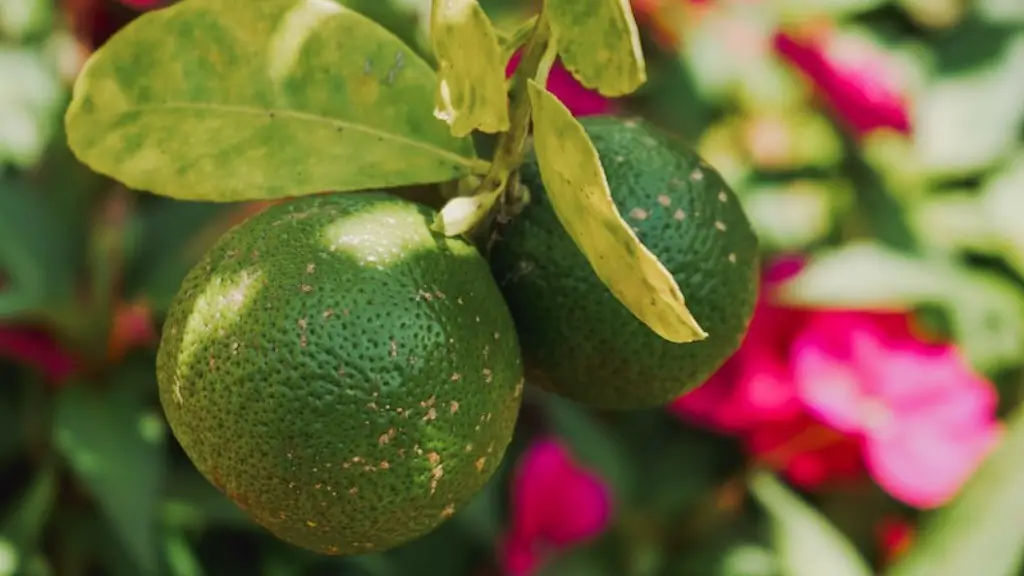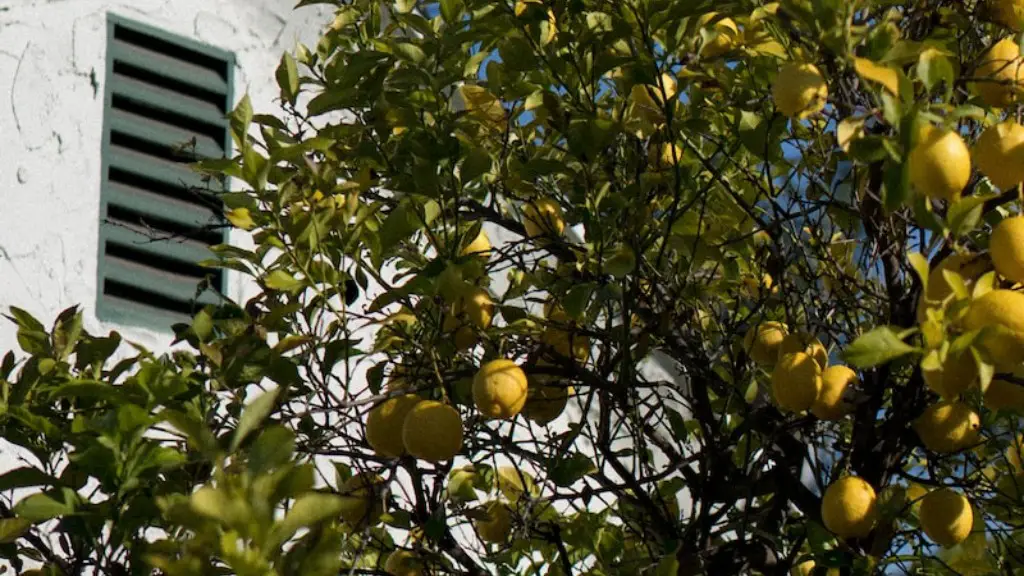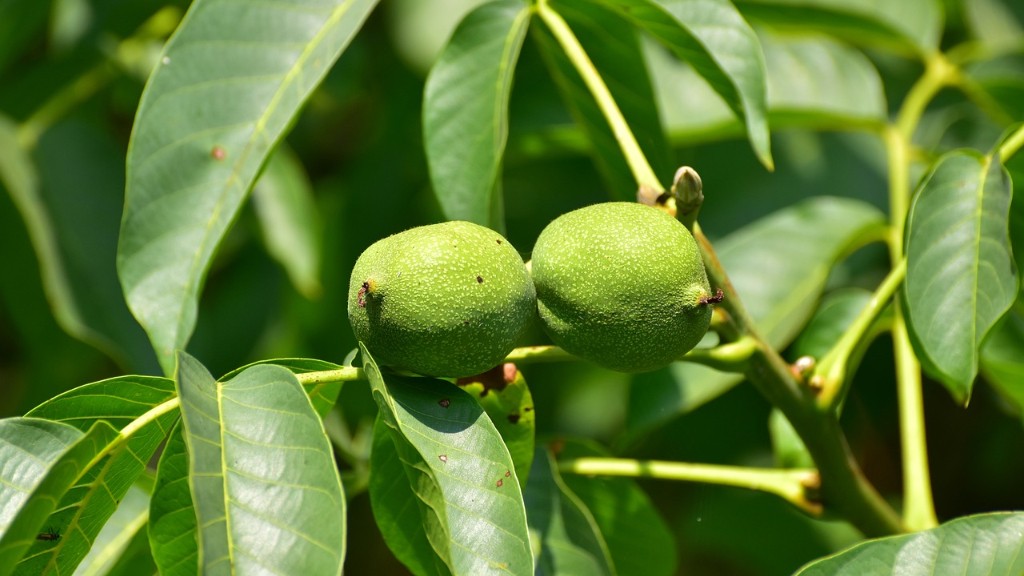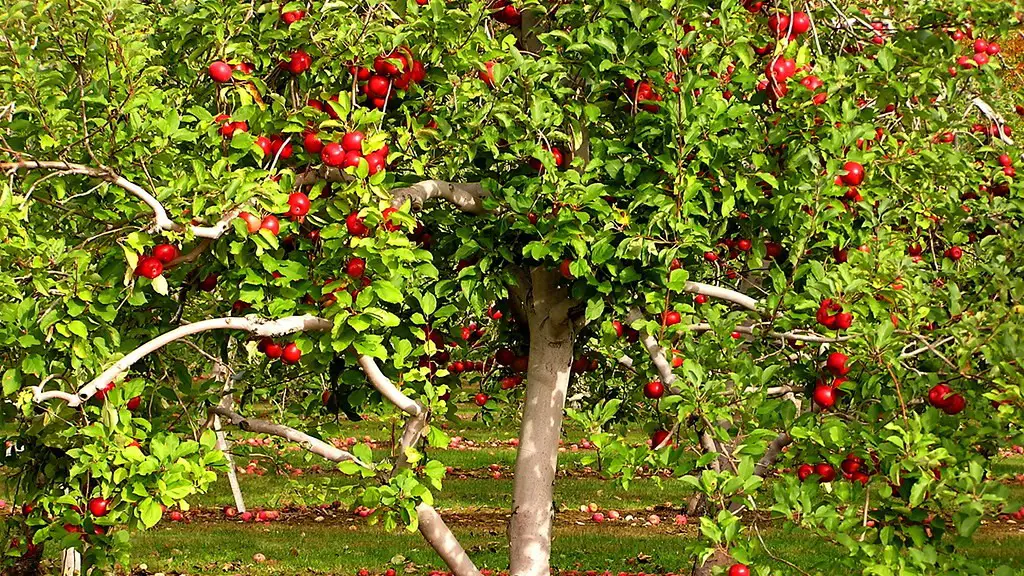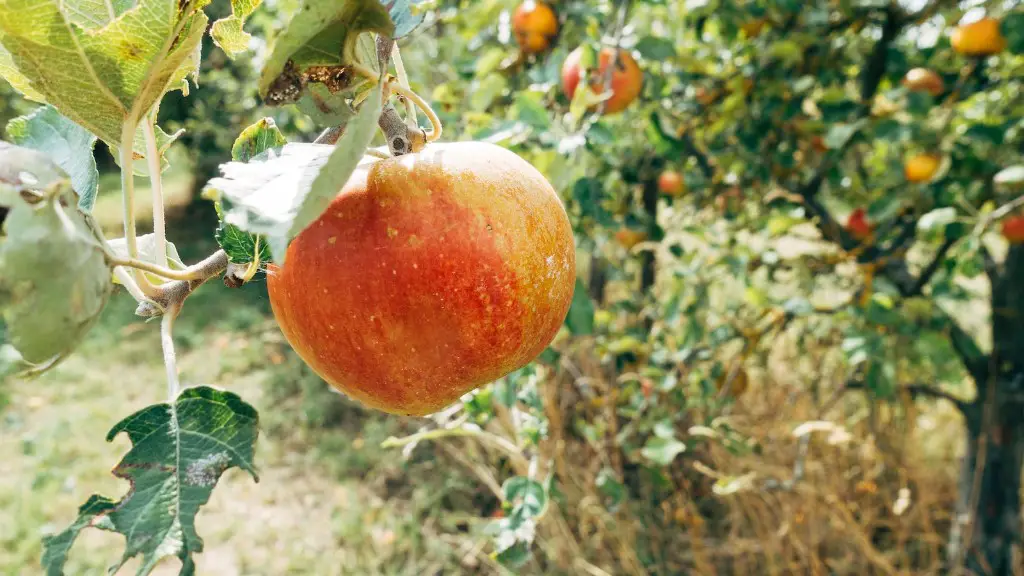Increasing lemon tree production starts with focusing on factors such as soil quality, climate, pruning, fertilizing, and pest control. Each of these factors must be taken into consideration when attempting to bolster the productivity of any citrus tree.
The quality of the soil is one of the most important factors in nurturing a productive lemon tree. To get the best results, your soil should be slightly acidic with a pH balance between 6.0 and 6.5. If the soil is too alkaline, you can add some sulfur to decrease the soil’s pH level. Additionally, make sure your soil has a combination of sand, loam, and clay. Next, enrich the soil by adding a layer of organic compost. By doing so, the soil will be able to hold more water and remain aerated.
Your climate is another important factor in lemon tree production. For optimum growth, lemon trees should be planted in an environment with lots of sunlight and temperatures ranging between 60 and 85 degrees Fahrenheit. You may also want to consider planting your lemon tree in a sheltered spot to protect it from strong winds, rain, or hail.
You will also want to maintain a regular pruning schedule for your lemon trees. Pruning will help to maintain your tree’s shape and increase air circulation during the hotter summer months. Additionally, pruning your lemon tree helps to minimize the chance for disease and pest infestations.
Fertilizing is likewise a crucial factor for the increased production of your lemon trees. Using a combination of nitrogen, phosphorus, and potassium can help to keep your tree healthy and promote growth. Organic fertilizers are best, as they work to stimulate the soil’s condition and increase the microorganism activity.
Finally, proper pest control is necessary to ensure the desired level of production. Inspect your lemon trees on a regular basis, looking for any signs of pest infestations. If you find any pests, try to use natural methods such as insecticidal soaps or other organic solutions to eradicate them. If the infestation is significant, then you may need to consider professional help so that your lemon trees aren’t compromised.
Watering Practices
Lemon trees require regular watering throughout the summer in order to remain healthy and productive. The amount of watering can vary depending on the climate and location, but as a general guideline, lemon trees should be watered every two weeks, with an additional two waterings every month. It’s important to make sure the soil around the roots is saturated and that any excess water drains away. Drip systems and soaker hoses can be excellent choices for an efficient and consistent watering.
The frequency of watering can also vary with the container size of the lemon tree. Generally, containers less than 12 inches in diameter need to be watered every 4-7 days. Larger containers may need more waterings, depending on the size and type of the container.
Additionally, your irrigation system must be monitored to ensure proper water pressure, supply, and flow. If the water flow is too slow, the water may seep away or saturate certain areas, and if it’s too high, the water may be wasted. Regular inspection and maintenance of your irrigation system is essential to ensure optimal water usage.
Finally, it’s important to water the lemon tree in early morning hours, as the soil moisture is at its peak during this time. You should also aim to prevent any water splashing onto the branches of the trees, as this can cause fungus and other diseases.
Using Fertilizers
Optimal fertilizers should be added to your soil to provide additional nutrients for the lemon trees. The amount of fertilizer will vary depending on the age of the trees and their rate of growth. Generally, young lemon trees are more demanding in terms of the amount of fertilizer needed and will require regular applications. Older trees will require less fertilizer.
Finally, organic fertilizers should be used to nourish your lemon trees. Synthetic fertilizers tend to have an excessive amount of nitrogen, which can be damaging to the trees in the long run. Organic fertilizers have a slower release of nutrients, and many are composed of natural ingredients, such as fish meal, bone meal, or feather meal.
It’s important to obtain a soil sample from your lemon trees and to have it tested in order to determine the type and amount of fertilizer needed. This will help you to avoid over-fertilizing, which can be toxic to the soil and result in a decrease in lemon tree production.
Mulching Techniques
Mulching provides a number of benefits when it comes to increased lemon tree production. Firstly, it helps to conserve the soil’s moisture, so water evaporates more slowly and the root systems of your trees can remain hydrated. Secondly, mulching helps to protect the surface roots of the lemon trees, by providing them with a layer of insulation against extreme temperatures.
Thirdly, mulching can help to reduce the number of weeds growing around the base of the trees. The mulch also helps to build a symbiotic relationship between the soil and the microorganisms, which helps to promote healthy growth for the trees.
Finally, mulching your lemon trees makes the soil more workable, as the rotting organic material from the mulch helps to break down the clay-based soils. Additionally, the layer of mulch also attracts beneficial insects and bees, which can aid in pollination of the lemon flowers and therefore, may result in an increase of your tree’s fruit production.
Pruning Tips
When carried out correctly, pruning can help to improve the structure of lemon trees and increase the number of fruits borne by the plant. Pruning should be done throughout the lifespan of the tree, starting with a thinning of the branches when the tree is youthful and continuing with regular pruning as the leaves and branches mature.
The branches and twigs should be cut back to a healthy bud or a 45-degree angle. Thinning out the branches also helps to increase air circulation and sunlight and reduces the chances of pest infestations. Additionally, pruning can help to improve the overall shape and form of the tree.
It is important to note that pruning should be timed appropriately. The ideal time to prune the lemon tree is during late winter or early spring, as this is when the tree is not actively growing. Additionally, pruning should be avoided during the summer months and drought season, as this can cause stress and damage to your trees.
Pest Control Strategies
It is important to regularly inspect and monitor your lemon trees for any signs of pest infestations. This can help to prevent any long-term damage to your trees and ensure that your lemon tree production remains healthy. Regular inspections should be done in the early morning hours, when most insects are at rest and visible on the tree.
If you observe any pests on your tree, take quick action to eliminate them. Chemical solutions and sprays are effective, but you should opt for natural and organic solutions if possible. Insecticidal soaps, neem oil, and fungus-fighting solutions are all available and are effective at controlling a wide variety of pests.
Finally, it is important to reduce the number of weeds growing around and near the trees, as this can increase the chance of pest infestations. Applying herbicides can help to reduce the number of weeds, but you should use ones labeled ‘safe for lemon tree use’.
